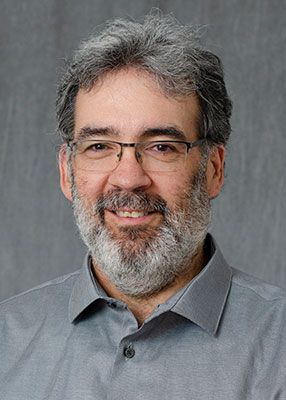
John Hawdon, Ph.D., associate professor of microbiology, immunology, and tropical medicine at the George Washington University School of Medicine and Health Sciences, became vice president of the American Society of Parasitologists (ASP) and received the 2016 ASP Henry Baldwin Ward Medal.
The vice presidential role involves a four-year commitment. Hawdon will serve as vice president for two years and then as president of the organization for the remaining two years.
Hawdon said receiving the award and serving as vice president of ASP are both “great honors.”
The Henry Baldwin Ward Medal recognizes individuals who have been with the society for more than three years, are active researchers in mid-career, and have already done excellent work in the field of parasitology. Hawdon has been an ASP member for more than 30 years.
“It’s one of the most prestigious medals our society gives,” Hawdon said. “People who’ve received the award have gone on to do some excellent work in the field, so it was quite an honor for me to receive it.”
Hawdon’s research focuses primarily on hookworm infection at the molecular level. Among his work, Hawdon discovered a new, unreported family of molecules that has gone on to be tested for vaccine antigens in not just hookworm, but other parasitic nematodes. He also developed a system that allows investigators to look at early events of infection at a molecular level.
At the society’s annual meeting, during which the award was presented to Hawdon, Kirsten Jensen, Ph.D., professor in the Department of Ecology and Evolutionary Biology and the Biodiversity Institute at the University of Kansas, called him “a true nematode renaissance man.”
The Henry Baldwin Ward Medal consists of a $1,000 honorarium, a certificate, and the Ward Medal.


